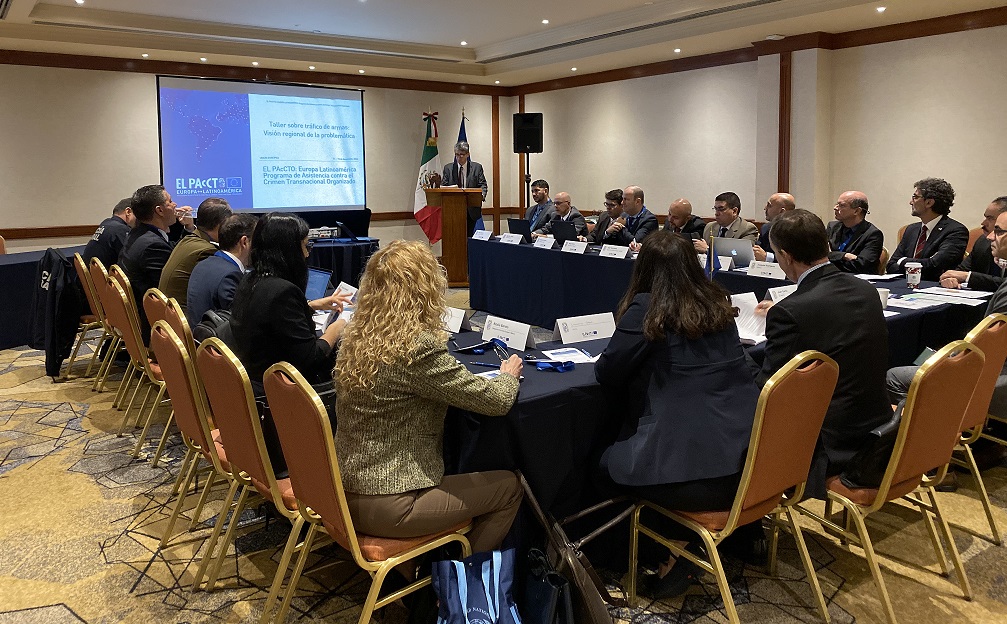From 11 to 13 November, Mexico City is the host of the Workshop on arms trafficking organised by the European Union EL PAcCTO programme. The main objective of the workshop is to strengthen police cooperation between the participating countries (Brazil, Chile, Costa Rica, Mexico and Paraguay) and the European Union in the area of arms trafficking, to analyse the situation of each country and to work on coordination mechanisms at the inter-institutional and regional level.
The leader of the firearms political cycle (EMPACT Firearms) of the European Union will participate actively in the activity, which is articulated and coordinated with Europol, with the aim of developing synergies of collaboration and work between Latin American and European countries to strengthen mechanisms of investigation, information exchange, coordination and the prevention of arms trafficking.
Experts from the Spanish Civil Guard, Interpol and the Judicial Police of Portugal are also taking part.
The Organisation of American States (OAS) estimates that approximately 700,000 weapons are moved illegally each year from the United States to Mexico and the Caribbean, of which 300,000 continue to Central and South America. Firearms contribute directly and indirectly to increases in actual levels of insecurity, and give citizens a sensation of lack of protection against violence.
It is estimated that more than 50 percent of violent assaults in the region are committed while in possession of firearms, further increasing citizens’ sense of insecurity.
With an average rate of 17.2 murders per 100,000 inhabitants, Latin America is still the most violent region in the world according to the latest global study on murders published in July 2019 by the United Nations Office against Drugs and Crime.
EL PAcCTO is a European Union programme controlled by FIIAPP (Spain) and Expertise France (France) with its partners IILA (Italy) and Camões (Portugal). Its main objective is to strengthen the institutions of 18 Latin American countries responsible for fighting organised crime.
